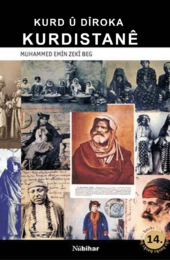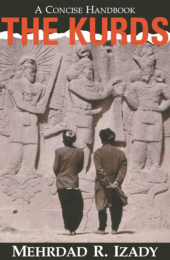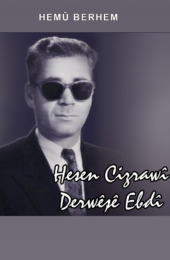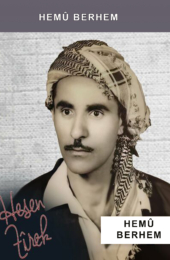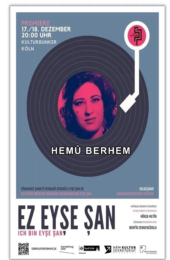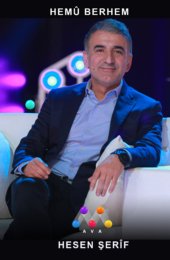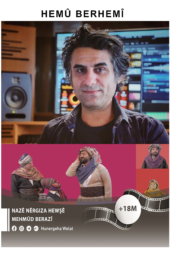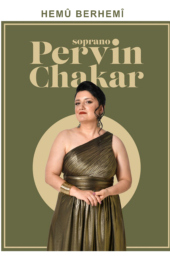Kurd û Dîroka Kurdistanê
Mehmed Emin Zeki Beg (1880-1948) was born in Süleymaniye, Ottoman Empire, and his father was Hacı Abdurrahman, engaged in tobacco trade. He excelled academically during his education [2]. As an Ottoman military officer, he played a significant role in Kurdish history and diplomacy. Zeki Beg's life is documented in "Kürtler ve Kürdistan Tarihi" (Kurds and Kurdistan History) [1][4]. His story reflects the complexities of the Kurdish experience during the early 20th century, combining military service and diplomatic contributions [3][5].
Stars: M. Emîn Zekî Beg
Kurds: A concise handbook
- M. Emîn Zekî Beg and Kurdish Boundaries (1931): M. Emîn Zekî Beg, an Iraqi Kurdish statesman, played a crucial role in delineating Kurdish boundaries while serving as the Minister of the Economy in the first Nuri as-Said government. This historical moment is outlined in the context of Kurdish history in Iraq[1].
- Şeref Xan's Sharafnama (Late 16th Century): The Sharafnama, authored by Şeref Xan, provides a critical analysis of Kurdish ethno-politics during the late sixteenth century. This historical text contributes to our understanding of the early modern world and the legacy of Kurdish history[4].
- Modern Kurdish Poetry (20th Century): The emergence of modern Kurdish poetry is a significant milestone in Kurdish literature, responding to the advent of modernity and nationalism in Kurdish society[5][6].
These key points highlight pivotal moments and figures in the history of the Kurds, offering insights into their socio-political and cultural evolution.
Stars: Mehrdad Izady
Şakiro
Şakiro
Şakir Deniz also known as Şakiro (born in 1936 in Eleşkirt–1996, Izmir, Turkey), was a Kurdish Dengbêj singer. His songs were often recorded on cassettes and distributed illegally, when the Kurdish language faced limitations in cultural expression in Turkey. He is one of the most prominent figures for Dengbêj in recent times. His and the recordings of other Dengbêjs such as Karapete Xaco are considered a resource for the ones who also want to become Denbêj singers. He once met such an apprentice and foresaw that he will be seen as a Dengbej who sings in the Şakiro style.
The family of Şakiro, who were from the Zilan tribe, lived in the village of Qerqa near Mount Aragats in Armenia before fleeing to the village of Kela Topraqqalê in present-day Eleşkirt district of Turkey, due to the conflict between the Russian and Ottoman empires.
Şakiro was born officially in 1936 (however it is also possible that he was born in 1931) while he spent most of his youth in nearby Cemalverdî village where he was exposed to Dengbêj songs from an early age.
Hesen Cizîrî
Hesen Ciziri: Kurdish Music Icon
- Hesen Ciziri, also known as Hesen Cizrawi, was a prominent figure in classic Kurdish music, born in 1917 in Cizre, Şırnak [6].
- He gained acclaim for his soulful compositions, exemplified in songs like "Ez Nexweşim" and "Ez Kevok im" [1][2].
- His discography, available on platforms like Deezer, includes albums and playlists showcasing his musical legacy [5].
- Ciziri's notable works include "Bilbilo" and "Nazê," contributing to the rich Kurdish musical heritage [4][8].
- Despite passing away in 1982, his influence persists, celebrated in playlists like "Hesen Ciziri (Hesen Cizrawi)" on platforms such as YouTube [7].
- Explore his timeless melodies, like "Suvarê dil ê min" and "Nîna," to appreciate the enduring impact of Hesen Ciziri's musical legacy [3][9].
Hassan Zirek
Hassan Zirek (Kurdish: حەسەن زیرەک, romanized: Hesen Zîrek) 29 November 1921 – 29 July 1972[1]) was a celebrated Kurdish songwriter-singer from Bukan, known for his recordings of classical Kurdish folk songs. He was famous for his classical and sensual lyrics, and it is believed that he composed over thousand songs in his lifetime.[2]
Erdewan Zaxoyî
Erdewan Zaxoyî (Kurdish: ئەردەوان زاخۆیی) (July 1957– January 1986)[1] was a celebrated Kurdish songwriter-singer and Composer from Zakho.
Erdewan Zaxoyî was born in 1957 as Erdewan Elî in Zaxo ( Kurdistan, Iraq ). He was one of a total of six children and grew up in his hometown and spent his youth there as well. In 1978, he released his first recorded tape, singing on Kurdish political texts, even though it was banned at the time. He later secretly supported the Kurdish Peshmerga-soldiers with his songs and folk songs, such as with Peşmergekê çelengêm. His songs were mostly about justice and freedom. He also wrote songs about his hometown Zaxo and Kurdistan.
In 1982, he fled to the Kurdish region of Iran following persecution by Saddam Hussein's regime. He lived there until the end of 1985 and wrote more songs. The content of these was in addition to the love of home, his homesickness and the yearning for his family, especially his mother, to whom he also sent his entire recorded tapes.
In January 1986, he finally returned and was reportedly abducted in the same year at a concert for the Kurds living in Baghdad by agents of the Secret Service of Iraq and probably murdered. To this day he has not been found.
After his disappearance, a monument was erected for him in Zaxo. It is located near the historic Delal Bridge, which he often mentioned in his texts. In addition, in February 2006, a celebration in memory of him and Eyaz Zaxoyi, a well-known singer, aligned in Duhok. At the ceremony, Dahuk Governor Tamar Kuchar gave a speech on the lives and works of the two artists.
His wife and children live in Sweden today .
Eyşe Şan
Eyşe Şan (Aysha Shan) (1938, in Diyarbakır – 18 December 1996, in İzmir) was a Kurdish singer.[1] She was also known by the names Eyşana Kurd, Eyşe Xan, Eyşana Eli. She is considered one of the most legendary voices in contemporary Kurdish music.[2][3]
Her father was a traditional Kurdish singer or dengbêj. Ayşe began singing at local events in 1958. After an unsuccessful marriage, she moved to Gaziantep, where she began recording Turkish songs for the local radio station. She moved to Istanbul in 1960 and recorded her first album in Kurdish. Due to pressure on artists performing in Kurdish, she emigrated to Germany in 1976.[4] While in Germany, her 18-month-old daughter Shahnaz died,[5] and Şan wrote the song "Qederê" in memory of her daughter.[6]
In 1979, she paid a visit to Iraqi Kurdistan where she met with many Kurdish musicians and singers such as Mihemed Arif Cizîrî and Tahsin Taha. From the 1980s onwards, she settled in Izmir and worked in a local post office until she died in 1996 due to cancer. Despite her wishes to be buried in Diyarbakir, Şan's family reportedly could not afford the expense of doing so.[4]
Şan was known as 'the Queen without a crown'.[6]
Among her most famous songs is "Xerîbim Dayê". The song is about her mother's death, a sad episode in her life.
Ciwan Haco
Ciwan Haco (born 1957) is a Kurdish singer. He was born in Tirbespî near Qamişlo in Syria. His grandfather was originally from Doğançay in Turkey.[1] After finishing high school, he left for Germany in order to continue his studies. He studied musicology at the Ruhr University Bochum. He is now residing in Sweden.[2]
His music
At the beginning he did not count with the support of his family due to fact at that time only the lower classes played music. But at 14 he released his first album and with 17 he performed for the first time in front of a larger public.[2] Ciwan Haco is one of the first Kurdish singers to combine Kurdish folk music with western style pop music, rock, blues and jazz. In 2003 he received permission for a concert in Batman, which was attended by more than 200,000 people.[2] Ciwan Haco is known for his lyrics that are often purposely simple and to which the main recurrent theme is love, with variations around this same theme. The main song from his last album Off (2006), Li hêviya te (Waiting for you) features vocals in both Kurmanci and French language (the latter being sung by a female vocalist).
Similar to other famous Kurdish musicians like Şivan Perwer, Haco sometimes uses poems by famous Kurdish poets such as Cegerxwîn or Qedrîcan in his songs [1],[2]. He has also recorded one of the novels of Mehmed Uzun named Destana Egîdekî.
Very popular in the Kurdish diaspora as with the Kurdish people in the Middle East, Ciwan Haco has given concerts in many parts of Europe.
Nîzamettîn Arîç
Nizamettin Ariç (Kurdish: Nîzamettîn Arîç; born 1956 in Ağrı, Turkey) is a contemporary Kurdish singer, composer and director.[1] He was exposed to traditional Kurdish bard music or dengbêj at an early age,[2] but until 1980 was professionally active as a singer of Turkish-language folksongs, including songs that he himself had translated from Kurdish to Turkish. In 1976, he began performing for Ankara Radio.[3] In 1979, at a concert in his hometown of Ağrı, he sang a love song in Kurdish, and was arrested for spreading propaganda.[4] Upon finding he was to be sentenced to 5–15 years, he sought political asylum in Germany and has resided in Berlin since.
Even though he was unable to perform in Turkey, as music critic Orhan Kahyaoğlu notes, Nizamettin Ariç's recordings have been influential on musicians in Turkey,[5] especially Kardeş Türküler (who has covered several of his songs),[6] and film/TV music arranger Aytekin Gazi Ataş.[7] His movie A Song for Beko was one of the first films in the Kurdish language and has won 15 international awards.[8]
Hesen Şerîf
Hasen Şerif ( 1969 in the village of Kêste in Dihok in South Kurdistan ) is a peshmerga singer and is of Kurdish origin. Since his childhood, he has been a friend of Kurdish songs and music . Even now, he is an active person in the field of Kurdish singing and music. His songs are in Kurdish style. In the field of study as well. He could not finish his studies due to his own special reasons at that time. [1] [2] [3] [4] [5]
Life
Hasen Şerif has been a lover of Kurdish songs since his childhood. He started playing the drum at the age of eleven and in the following years he helped many Kurdish artists with his drum until he chose his own artistic path at the age of sixteen. In 1985 , Hasan Şerif released his first work called " Tambura min " and in 1986 the product called " Baran Bari ".
In 1987 , because of his patriotic and thoughtful songs, he was forced to leave Duhok and head to the mountains of Kurdistan , which became the home of the heroic peshmerga . Because of the Anfal attacks , which the Iraqi government carried out against the innocent Kurds in 1988 , he was forced like every Kurd and became a refugee in his country, in Diyarbakır and stayed in Diyarbakır until the end of 1991 .
He recorded his tape called " Halepçe-Hiroshima Kurdistan " in the refugee camp in Diyarbakır , which was surrounded by ropes and gendarmes and under very difficult conditions. After the sacred uprising in 1991 in South Kurdistan, he returned to his homeland like every Kurdish refugee.
At the time of the beginning of freedom, he participated in many concerts, celebrations and national holidays. In 1993 , he released his tape called " Mountain Lion " and in 1994 his tape called " Sheva Eshqa Min Direj bu ". Hasen Şerif left the country in 1995 and went to Sweden .
No matter how many times he left his people, his love for artistic and national work continued. As it is known, he participated in many events and national commemorations held in European countries, and he did not leave the Kurds of Canada and America without his art and voice. In 1998 , he released the work called " Happiness " in Sweden . In 2002, he released the album " Tora Evin " and in 2004 the album " Mizgini ".
Hasen Şerif's video called " Beyta Laleş ", directed by Husên Hesen , was selected as the Best Video in the First Kurdish Video Competition of Zaxo in 2006 .
Mehmûd Berazî
- Music Artist: Mehmûd Berazî is a Kurdish music artist with a significant online presence, featured on platforms like YouTube, Spotify, Apple Music, Deezer, and SoundCloud [1][4][7][10].
- Recent Work: Notably, his 2023 release "Li Qamişlo Li Ber Derî" has a music video on YouTube [2]. Additionally, "Zeriyên Şeşdara | Heftenîn" is one of his official music tracks [5][6].
- Audience Reach: Mehmûd Berazî has a substantial following, evidenced by 70.4K monthly listeners on Spotify and curated playlists dedicated to his music [4][9].
- Online Platforms: He is featured on various platforms, making his music easily accessible across different devices and services, including Android, iOS, and desktop [3][8].
For a detailed exploration of Mehmûd Berazî's work, visit his official YouTube channel and streaming profiles.
Pervîn Chakar
Pervîn Chakar :
- Background:
- Pervîn Chakar is a Kurdish-German opera singer born on June 19, 1981, in Derik, Mardin [8].
- Career Highlights:
- Winner of the "2012 Golden Orfeo Grand Prix Leyla Gencer" in France and the "2012 Best Female Voice" by Semiha Berksoy [3].
- Repertoire:
- Online Presence:
- Discography:
- Music available on Apple Music under the name Pervîn Çakar [9].
Note: For more detailed information, refer to the provided Wikipedia link Pervin Chakar (Number 1).
Miradê Kinê
- YouTube Channel: Miradê Kinê has a YouTube channel with over 4.11K subscribers and 354 videos, featuring content like "Darvanîyo"[1].
- Biography: Born in 1943 in Altınoluk (Gera Cafer) village, Gercüş, Batman, Miradê Kinê is an artist known locally as Mirado[7].
- Music Platforms: Miradê Kinê's music is available on Spotify, with 4.4K monthly listeners, and on Apple Music with popular tracks like "Sêvê" and "Derê Malê Bi Bexçeye"[3][5].
- Official YouTube Presence: The official YouTube channel (@miradekine2791) is dedicated to preserving his archive, with a call for subscribers to support this effort[4].
- Facebook Community: There is a Facebook community named "Komâ Miradê Kinê" with 3597 likes, fostering engagement and discussions about his work[8].
For more in-depth details, visit the respective sources.
Adnan Karim
Adnan Karim is a prominent Kurdish singer and painter, known for adapting classical Kurdish poems into songs [1]. His official YouTube channel showcases his classic Kurdish folk music [2]. Adnan Karim is active on Instagram, sharing updates about his music, including a new album titled "City شار" [3]. As a managing director of human rights education at Robert F. Kennedy Human Rights, he contributes to service learning programs [6]. Adnan Karim's music is available on platforms like SoundCloud, Apple Music, and Spotify [4, 8, 9]. One of his popular songs is "Xemi Tome" [5]. He often uses classical Kurdish poetry in his compositions, drawing from poets like MEWLEWI and MAHWI [7].
A time for Drunken Horses
A Time for Drunken Horses :
- Film Details:
- Synopsis:
- Reception:
- Visuals:
- Availability:
In summary, A Time for Drunken Horses is a critically acclaimed Kurdish drama offering a poignant portrayal of life's challenges in the region. It received recognition for its passionate storytelling and has visual content available online.
